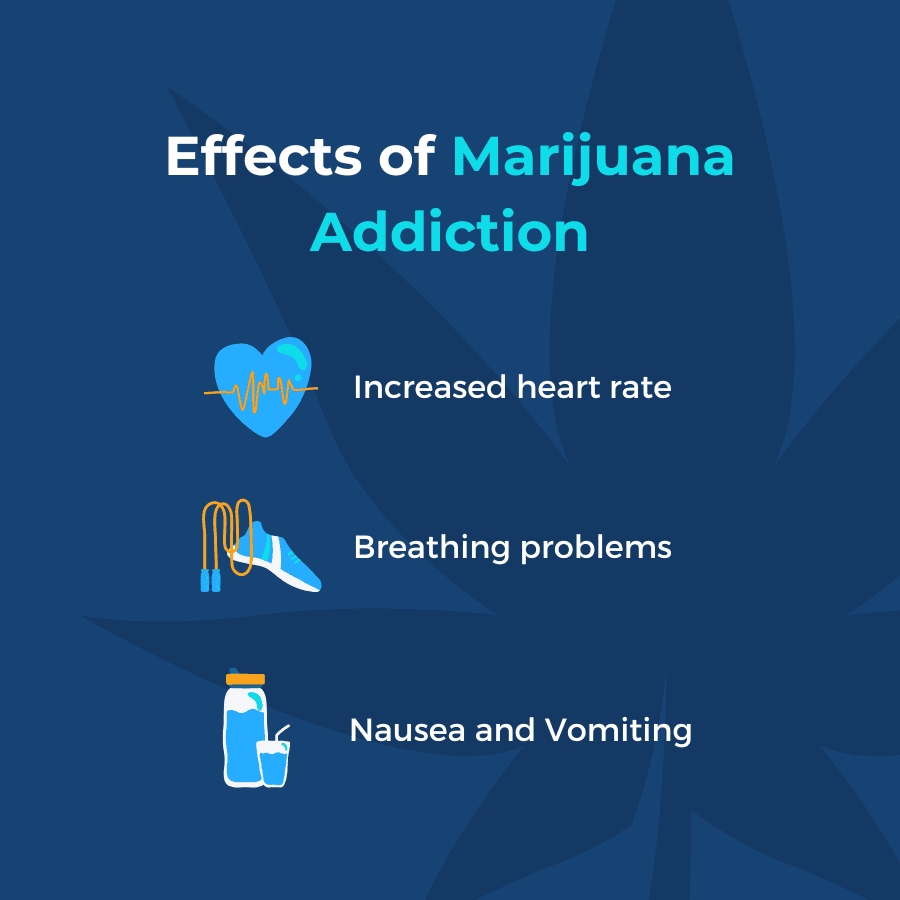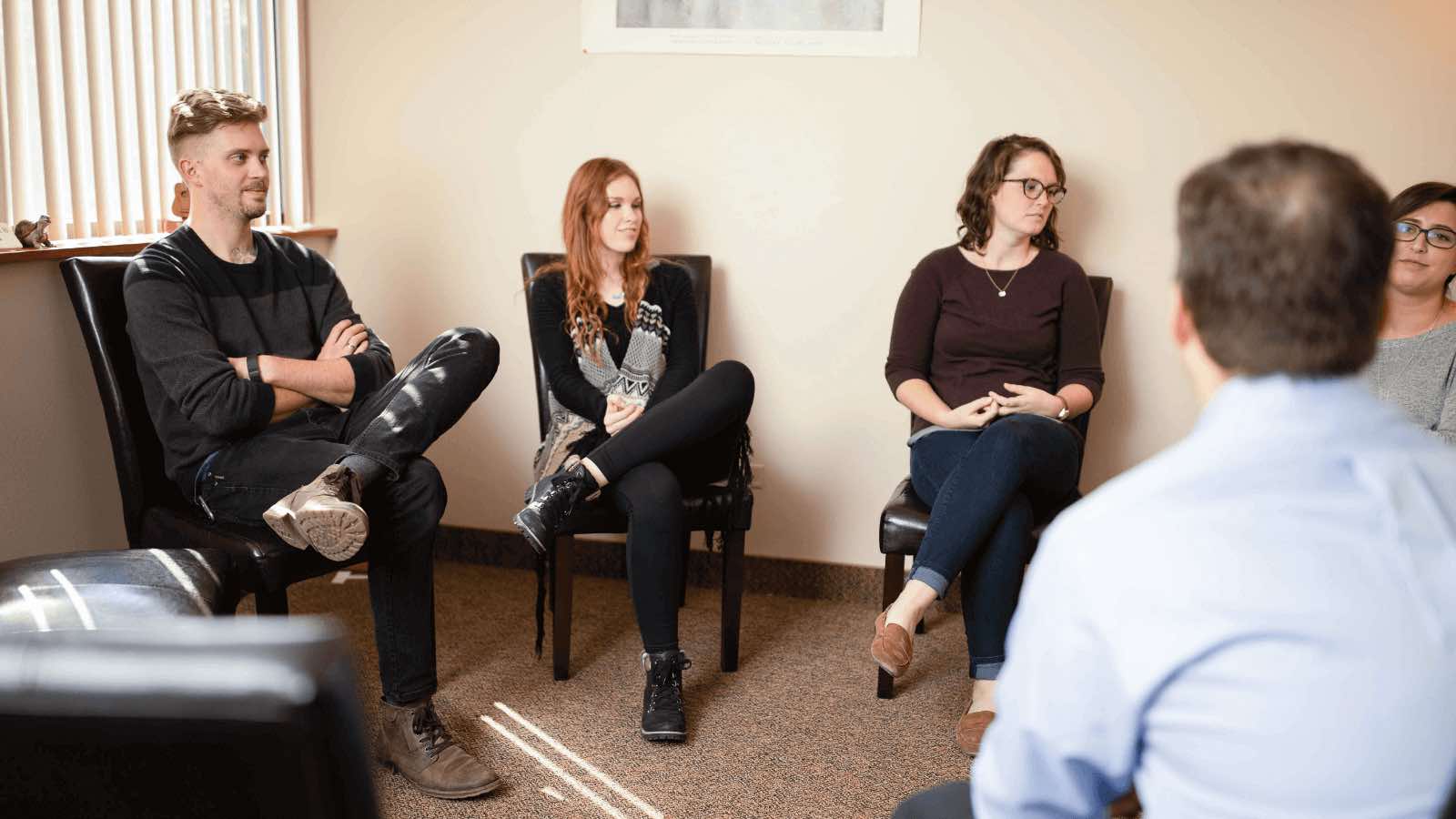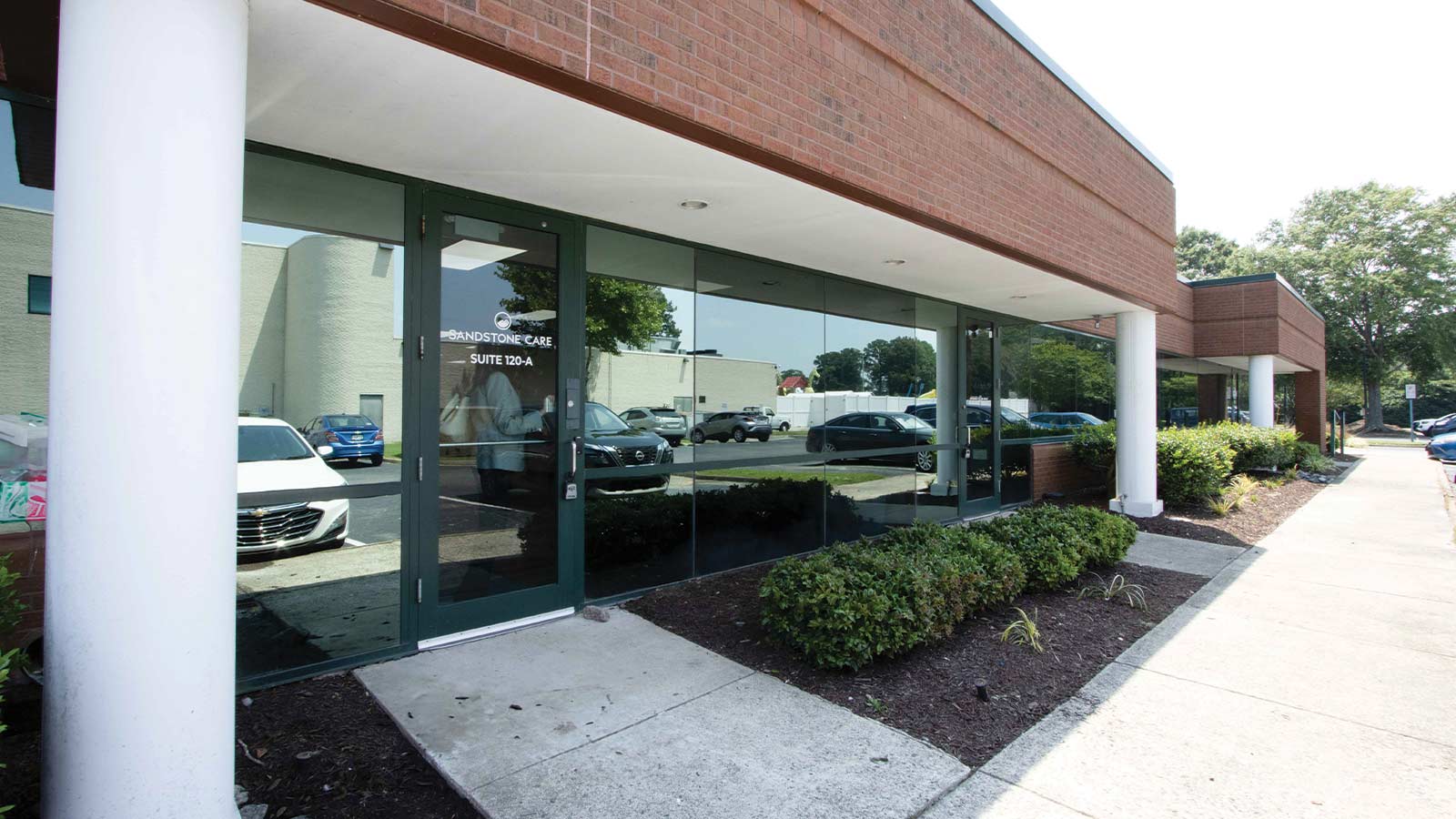Marijuana refers to the dried leaves, flowers, stems, and seeds of the Cannabis Sativa or Cannabis Indica plant.
Marijuana, also referred to as weed, is one of the most commonly used drugs among young people, along with alcohol and tobacco. People can smoke marijuana from cigarettes, pipes, blunts, or vaporizers. It can also be mixed with food and consumed or brewed as a tea.
The teen years involve many new changes, transitions, and experiences. Many teens are searching for more independence and trying to find a sense of identity. In doing so, they may start to experiment with certain substances, like marijuana.
However, many young people are unaware of the negative effects of marijuana. Reach out to our admissions team to learn more about our teen marijuana rehab.
Many teens also struggle with mental health issues.
Many teens also struggle with mental health issues during addiction which is called co-occurring disorders.
Mental illnesses like depression or anxiety are common among teens and adolescents. They may turn to substances as a way to self-medicate.
Marijuana contains the mind-altering chemical tetrahydrocannabinol (THC). THC is mainly responsible for the effects marijuana has on a person’s mental state. THC can affect a person’s memory, pleasure, thinking, and perception.
SAMHSA reports that today’s marijuana has three times the concentration of THC than it had 25 years ago. The higher the THC amounts, the stronger the effects are on the brain. More THC can be linked to higher rates of dependency and addiction.


Marijuana use and addiction can cause negative effects on both physical and mental health.
Long-term marijuana use can lead to temporary hallucinations or paranoia and worsened symptoms in other mental health problems such as anxiety or depression.
Physical effects may include:
Long-term marijuana use can lead to Cannabinoid Hyperemesis Syndrome, which involves repeated cycles of severe nausea, vomiting, and dehydration, and sometimes requires medical attention.
Additionally, people who drive under the influence of marijuana put themselves and others at risk. Marijuana can cause slowed reactions, decreased coordination, and difficulty reading road signs which can result in accidents or fatality.
Some side effects of marijuana use and addiction can include:

Teen cannabis rehab can gives your teen their best chance at breaking free of their dependence on marijuana. These programs employ evidence-based strategies, including cognitive-behavioral and family therapy, which empowers your teen to be able to handle their challenges without reverting to their weed addiction.
Finding marijuana addiction treatment for teens can feel like it puts you in a vulnerable position. It’s important to find the right people and programs to take care of your child.
As you look for a rehab, focus on these key features:
Sandstone Care excels in each of these crucial areas, providing your teen with clear, safe, and effective adolescent marijuana addiction treatment.
The Continuum of Care
Access a full range of treatments for mental health and substance use disorders. Whether you need a safe transitional living community, inpatient care, or outpatient therapy, we have a program to help.

We’re here to help. Even if Sandstone isn’t the right fit, we’ll help you find and take the next step to treat marijuana use.
There is currently no medication made to treat teen marijuana addiction; however, behavioral therapy sessions have shown to be effective at both lowering addiction and relapse prevention.
Psychotherapy, also known as talk therapy, refers to a variety of different treatment techniques that can help people identify and change troubling thoughts, feelings, emotions, and behavior – especially during substance abuse treatment.
Individual therapy can help individuals build healthy coping mechanisms, learn social and communication skills, and raise self-awareness and understanding.
The goal of teen marijuana addiction treatment is to help young adults achieve and maintain sobriety, learn healthy coping skills, and improve their quality of life.
Age-specific care also highlights the importance of family involvement in treatment and academic and vocational support to help teens reach their goals and live without substances.
Sometimes, you may be unsure of whether or not your child could benefit from teen marijuana treatment.
You can always reach out to a healthcare provider or professional to provide more information and to give a proper diagnosis.
However, some signs may indicate your teen needs marijuana addiction treatment. Addiction hurts one’s physical, mental, and overall well-being.
If your teen is engaging in marijuana use and it has begun to affect their physical health, mental health, and relationships, reach out for help. Marijuana addiction can cause young people to lose interest in things they once loved. If you notice they are isolating themselves, losing friends, or are lacking motivation due to substance use, it can also be a sign to get addiction and mental health treatment.
Additionally, marijuana addiction can lead to other destructive behaviors such as lying, stealing, or getting into problems with the law.

11820 Parklawn Dr. #403, Rockville, Maryland, 20852
(888) 850-1890
